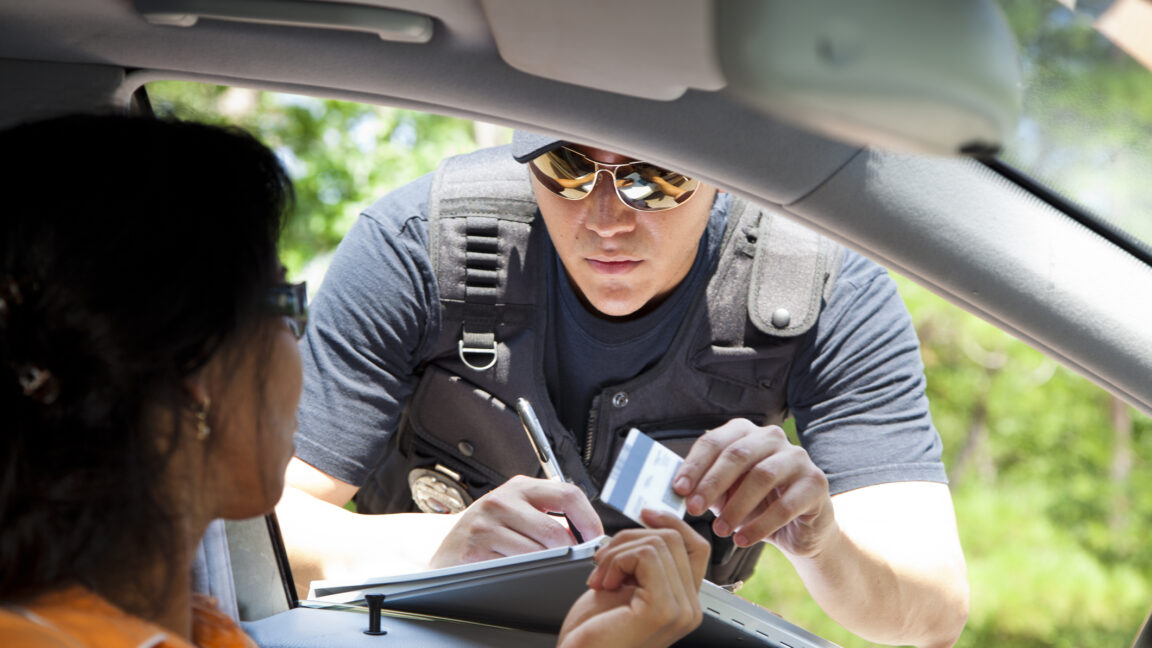
Study of Lyft rideshare data confirms minorities get more tickets
arstechnica.com
Driving while non-white Study of Lyft rideshare data confirms minorities get more tickets Researchers ascribe it to "animus or prejudice against minority drivers." John Timmer Mar 27, 2025 4:22 pm | 0 Credit: fstop123 Credit: fstop123 Story textSizeSmallStandardLargeWidth *StandardWideLinksStandardOrange* Subscribers only Learn moreIt's no secret that "driving while black" is a real phenomenon. Study after study has shown that minority drivers are ticketed at a higher rate, and data from speed cameras suggests that it's not because they commit traffic violations more frequently. But this leaves open the question of why. Bias is an obvious answer, but it's hard to eliminate an alternative explanation: Minority groups may engage in more unsafe driving, and the police are trying to deter that.But now, Lyft has given a group of researchers access to detailed data from their drivers. The results confirm that minority drivers get more tickets, and they pay higher fines when they do. And the results also show that minorities aren't in any way more likely to speed or engage in unsafe driving. Which suggests, in their words, that the problem is "animus" against minority drivers.Giving research a LyftThe work was done thanks to cooperation from the ridesharing company Lyft, which provided data on its drivers in Florida, all 222,838 of them, along with a record of all the GPS pings their tracking systems sent into the company's servers. Combined with a detailed map of Florida's roads, along with their speed limits, they could determine when a given driver was speeding. They also obtained Florida police records of any accidents and cross-referenced their locations to any vehicle that experienced a sudden stop in that spot at the same time.In addition, they got ahold of voting registration records of the drivers, about half of whom were registered voters. These included information on the driver's ethnicity. Separately, Lyft receives an image of each driver when they start working with the company. These images were used to infer the ethnicity of the remaining drivers. These were broken down into broad categories, but ultimately the data analysis split people into white and minorities.Then, the researchers got data on all the speeding tickets issued in Florida and identified the ones belonging to Lyft drivers.The data showed one thing clearly: Lyft has incentives for its drivers to avoid traffic violations, and they work. "Compared with the general population of motorists, our sample is less prone to speed, especially more than 10 mph over the limit," the team writes. "As a result, our analysis examines only 1,423 citations for speeding." While lower than you'd expect, that's more than enough to do some statistics on the frequency of these citations.AnimusThere's a lot of confounding factors that might influence whether someone gets pulled over and cited, like their gender, the make of their car, and so on. The researchers handle this in two ways. For one analysis, the researchers themselves chose a set of factors to include as potential confounding influences in an analysis. For the second, they relied on machine learning to determine the factors that would be considered in the analysis. Both approaches led to similar results.The results clearly reproduced a similar pattern to earlier research. Minority Lyft drivers were about 30 percent more likely to be pulled over and cited for speeding (the two analyses produced results of 24 and 33 percent). Once cited, they were also likely to receive higher fines, either 23 or 34 percent more than white drivers.The remaining question was whythe police could potentially be acting out of bias, or they could be attempting to deter minority drivers because they are more prone to problematic driving. So, the researchers compared the actual frequency of speeding based on the GPS data and used accidents as a proxy for problematic driving habits. Neither of these showed any significant differences between minorities and white drivers.So, the researchers are left to conclude it's simply because of what they call "animus" against minority drivers on the part of the police. And the problems go well beyond the impact of the fines themselves. The researchers note that most auto insurance policy providers give drivers discounts for avoiding traffic violations. Which suggests that minorities face the additional burden of paying more simply for being able to drive with insurance, something that's legally required by US states.Science, 2025. DOI: 10.1126/science.adp5357 (About DOIs).John TimmerSenior Science EditorJohn TimmerSenior Science Editor John is Ars Technica's science editor. He has a Bachelor of Arts in Biochemistry from Columbia University, and a Ph.D. in Molecular and Cell Biology from the University of California, Berkeley. When physically separated from his keyboard, he tends to seek out a bicycle, or a scenic location for communing with his hiking boots. 0 Comments
0 Comments
·0 Shares
·60 Views


